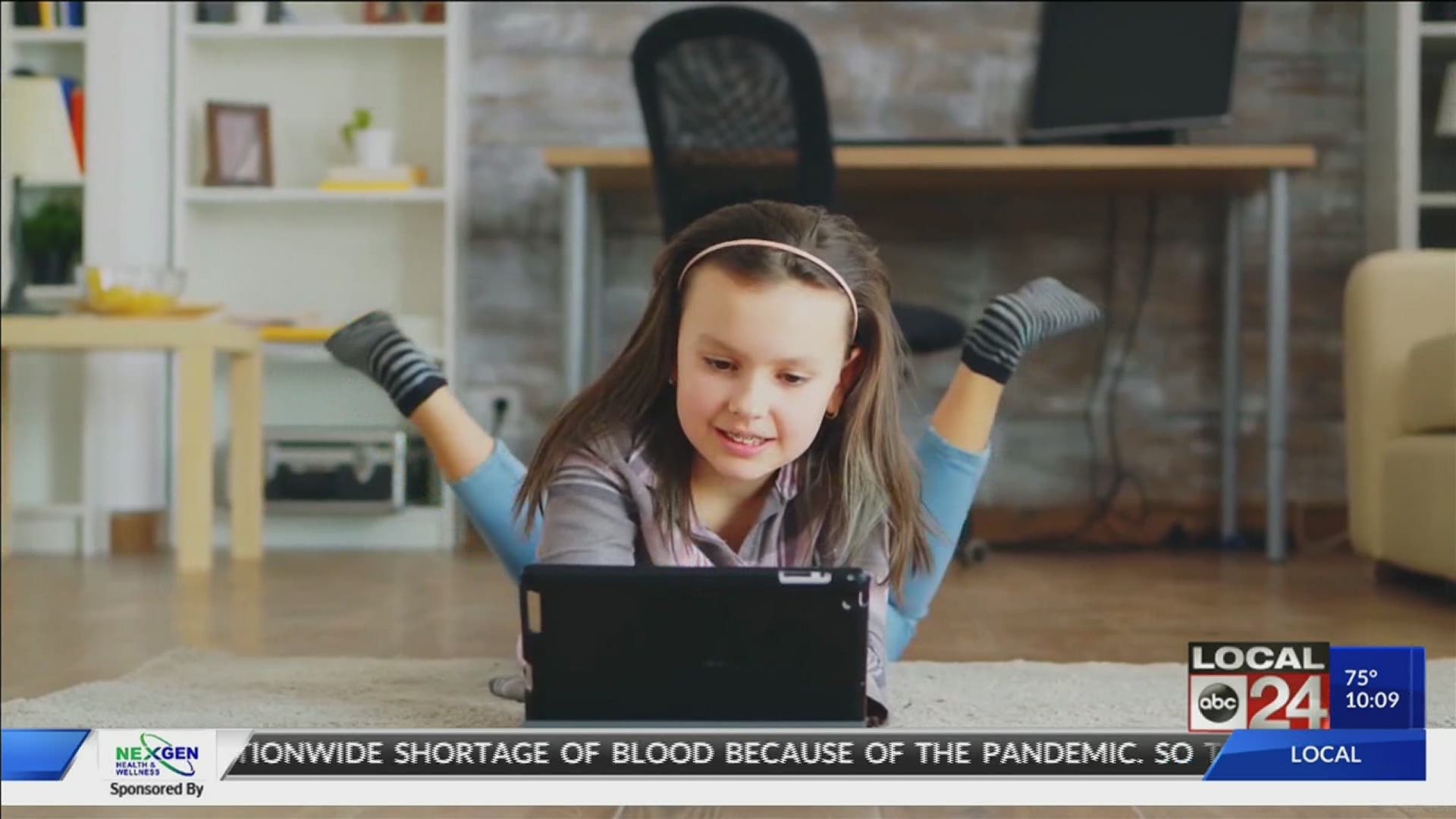BYHALIA, Miss — Even in the age of technology, the digital divide is still an issue in many communities across Mississippi. In rural Marshall County, broadband is not reliable, and the internet is not fast.
Byhalia resident Dana Wells has children embarking on a virtual school year, and it has not been cheap.
"I’ve got extra on my utilities because it’s not just two people in the house for the majority of the day," Wells said.
Marshall County Schools is offering a hybrid program so students who need to come to school a few days a week can, or they can be 100% virtual. For Wells, whose husband is immunocompromised, her children going back to school is not a safe option, but she is also on a fixed income so it will be difficult to have the added expenses that will come with a school year at home.
"Just worried that I might have to pay for a booster along with the devices they get," Wells said.
Wells does not want her four children falling behind in their schoolwork, so she is trying to make her home as conducive to their virtual learning as possible. She is hoping setting up a workspace near her modem will lessen any connectivity issues.
"I’ve got an office set up in one room of my house where my computer is and that’s where my modem is and I’ve got a table in the middle of the floor where they're going to be sitting at with their devices to do their homework," Wells said.
The digital devices for each student will cost $35 as an insurance and maintenance fee. Marshall County Schools superintendent Roy Lawson said the added cost will help maintain the devices they will purchase with money from the state.
"We got to have a plan that we submitted to the state with how we’re going to sustain this program going forward because this is one-time money," Wells said.
The schools district is expected to purchase 29,000 more Chromebooks for its students so no child goes without a learning device. Lawson said the digital devices will be incorporated into the curriculum for the long term.
"Our people are going to expect for us to continue having a device for these students and so part of our plan is that we’ll reallocate our federal dollars that we get on an annual basis to purchase 900 additional Chromebooks per year," Lawson said. "So, that we’re always supplementing the ones that as they get older, so we’ll have a sustainable plan for every kid in Marshall County to have a Chromebook or device."
He understands internet connectivity in their district will be a challenge. Lawson said students will not be penalized for turning in an assignment late due to internet issues. To ease the burden, virtual students are invited to come to their school's parking lot to use the WiFi to download and submit their schoolwork.
"We have upgraded the WiFi on each of our school campuses where if they need to come and upload and do some of that work to put things into the learning management system that they can come and use our parking lot," Lawson said.
In the meantime, the school district is working to find a partner so they can equip school buses with WiFi hotspots and park them in various neighborhoods for students to access.
If the $35 cost of the laptop is not financially doable for a family, Lawson said the district will work with each family on a case by case basis to find a solution.
"If parents call and they say this is going to be financially a hardship on them then we’re going to work with that family," Lawson said.

